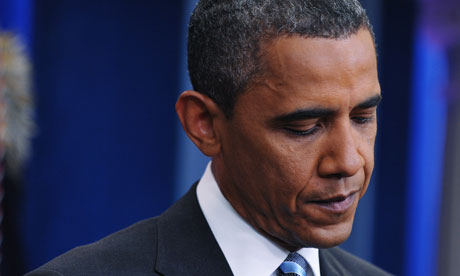In 2005, American liberals achieved one of their most significant
political victories of the last decade. It occurred with the resounding
rejection of George W Bush's campaign to privatise social security.
Bush's
scheme would have gutted the crux of that entitlement programme by
converting it from what it has been since the 1940s -- a universal
guarantor of minimally decent living conditions for America's elderly --
into a Wall Street casino and bonanza.
Progressive activists and bloggers relentlessly attacked both the plan and underlying premises (the myth that social security faces a "crisis"), spawning nationwide opposition. Only a few months after he unveiled his scheme to great fanfare, Bush was forced to sheepishly withdraw it, a defeat he described as his biggest failure.
That victory established an important political fact. While there are very few unifying principles for the Democratic party, one (arguably the primary one) is a steadfast defence of basic entitlement programs for the poor and elderly -- social security, Medicare and Medicaid -- from the wealthy, corporatised factions that have long targeted them for cuts.
But in 2009, clear signs emerged that President Obama was eager to achieve what his right-predecessor could not: cut social security. Before he was even inaugurated, Obama echoed the right's manipulative rhetorical tactic: that (along with Medicare) the programme was in crisis and producing "red ink as far as the eye can see." President-elect Obama thus vowed that these crown jewels of his party since the New Deal would be, as Politico reported, a "central part" of his efforts to reduce the deficit.
The next month, his top economic adviser, the Wall Street-friendly Larry Summers, also vowed specific benefit cuts to Time magazine. He then stacked his "deficit commission" with long-time advocates of social security cuts.






